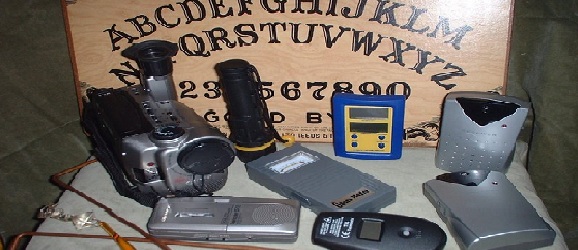Complex Words and Machinery Make Ghosthunters Seem Less Bullshitty
This article is more than 2 years old

Given that this is a sci-fi website, it’s hard for me to know on which side of the ghost controversy readers fall. On the non-believer side, there are critical thinkers who consider the dearth of adequate evidence and are thus convinced it doesn’t exist, while most are open to the possibility of being proved wrong. On the believer side, there are people who spend their money supporting the con artists constantly fooling people into thinking that their darkest imaginings may exist, and these people will not accept a single notion to the contrary. Well, it turns out, as is the case with most forms of belief systems, that believers are being fooled into thinking this way.
Paul Brewer, professor of communication at the University of Delaware, put together a study for Science Communication that tested how language and assumptions can guide people into believing things. He gathered together a few hundred volunteers to read one of three newspaper articles concerning a ghost hunter, while a fourth control group read an unrelated article.
The first group was given an article written to draw out the “scientific” jargon involved in ghost hunting, with various mentions of electronic devices used in his “meticulous approach.” The second group read an article that replaced the technical vocabulary for spiritual anecdotes, highlighting the subjects strange childhood and his openness to using mediums as communication with the dead. The third group received an article identical to the first, only with an add-on paragraph from a naysaying skeptic’s point-of-view. A questionnaire was then filled out, and the results were tallied.
Surprise! The first group were the ones most likely to agree that ghosts and paranormal events are real, where the third group was less likely to assume ghost hunters are credible. Outside variables, such as age and gender, were also tested, and the predictable conclusion here was that people who watch shows about paranormal investigations are more likely to believe in them.
I’ve seen doctors, people with actual degrees and enough years on the job to make them experts in their fields, make different assumptions when given the same medical conditions. So if a set of highly respectable pieces of paper aren’t enough to gain my full trust, why would a handheld thermal camera and an EVP recorder do anything to sway me? However. If it’s an EPK meter held by Dan Aykroyd with a cigarette hanging out of his mouth, then maybe I’ll believe.












